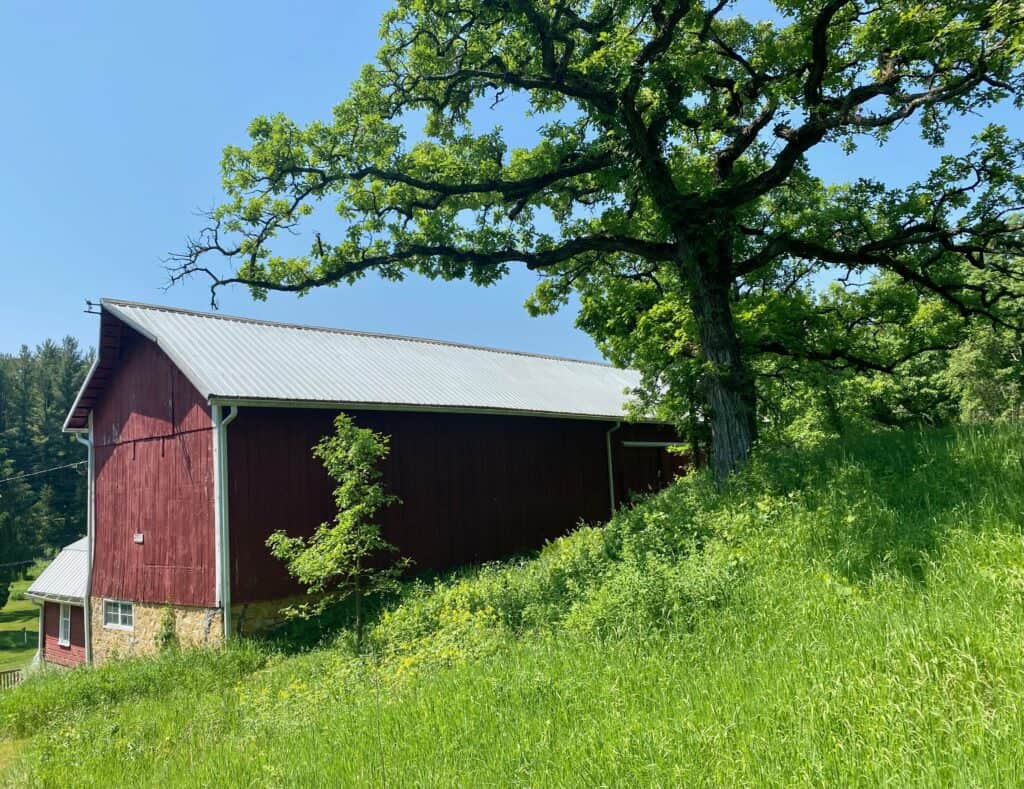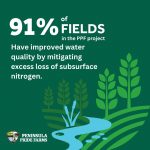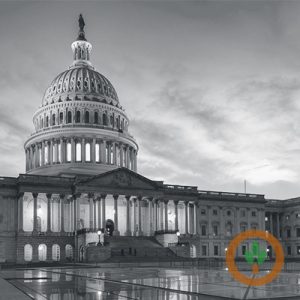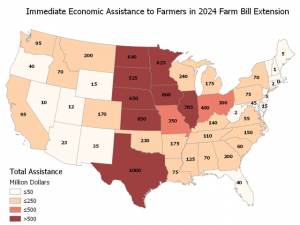
The Farm Bill, an omnibus five year bill dealing with farm and food programs, ultimately affects everyone in Wisconsin. Whether you farm, eat, depend on food assistance programs, or just like to breathe clean air or have access to clean water, the Farm Bill affects you.
Republican Congressman Derrick Van Orden hosted a Farm Bill listening session on Aug. 16 in La Crosse. While a good share of the standing-room-only crowd had signed up to testify (with a one minute time limit) during the two-hour session, only a small number were given the opportunity.
House Agriculture Committee Chair Glenn “G.T.” Thompson (R-Pennsylvania) fielded questions and comments and assured everyone that “we don’t discriminate on [farm] size.” Really? he also stated that larger farms have more acreage and therefore higher costs. True, but they also have more income, and if the “get big or get out” crowd is to be believed larger farms are the most efficient, productive and environmentally conscious. Still, they receive the lion’s share of farm subsidy payments.
Dairy was the primary topic at last week’s listening session, with testimony ranging from calls for reforming the federal milk marketing orders, enforcement of trade agreements (forcing Canada to accept more of our milk surplus), getting whole milk back in schools, to the problems of low prices and getting rid of surplus milk.
Thompson specifically noted there is no plan for any kind of production management. He made that point in answer to a request to expand the Dairy Margin Coverage Program (DMC) — the federal government’s very weak effort to protect small and medium size dairy farms. Larger farms should continue to make more money in Thompson’s view. But weren’t they supposed to be more efficient?
And of course, the question was asked, “What is the U.S. doing to prevent China from purchasing U.S. farmland?” Yes, that is a concern, according to the members of Congress who hosted the gathering. In my opinion, China is not the only problem. The real problem is the fact that corporate “investors” who don’t farm, but see land as an “investment opportunity” drive up farmland prices making it harder for farmers, especially young farmers, to purchase farmland.
Why is there no effort to prevent investment firms, retirement funds like TIAA, and guys like Bill Gates from purchasing U.S. farmland? They own way more land than China and they are not farmers. And, never mind that the largest pork processor in the U.S., Smithfield, is owned by WH Group, a Chinese company. Somehow I guess that’s OK with the same crowd that wants to get the Chinese out of U.S. agriculture.
One farmer asked what Thompson proposed to do about California’s Proposition 12, a state law that puts in place regulations that require veal calves, breeding pigs, and egg-laying hens to be housed in systems that comply with specific standards for freedom of movement, cage-free design, and specified minimum floor space. He noted that raising pigs as he does [in confinement] is really what’s best for the animal. Really? Sows in crates they can’t turn around in? Thompson agreed that the Farm Bill would have to address Prop. 12, (read, get rid of it). Republicans are all about states’ rights it seems, except when they’re not. Could protecting the “get big or get out” objective be the basis for those judgements?
Both the hosts of the listening session and some attendees expressed support for eliminating permits letting CAFOs basically self-regulate their wastewater discharge and manure runoff. And what could possibly go wrong with that?
Sen. Ron Johnson, after arriving fashionably late, asked the crowd if the government helps or hurts farmers’ ability to feed the world.
I saw no clear consensus, but Johnson and Van Orden heard what they wanted to hear and took it as confirmation of their distaste of environmental regulations. Van Orden, introducing himself to the assembled farmers, took credit for shutting down the Waters of the United States (WOTUS) section of the Clean Water Act. Don’t get me wrong, WOTUS was not perfect and it was misunderstood and misinterpreted, but protecting water from manure, wastewater and industrial pollution is kind of important.
There were requests for more money for cranberry research, more corn ethanol fuel mandates, more ability for states to regulate distribution of federal relief funds. One questioner asked for more programs to support fair land access for beginning, minority veteran and women farmers. That sent Johnson into a tirade on the untenable government debt, at which point the questioner reminded the senator that he was in part responsible for passing bloated funding bills, many of which were wasteful and did little to help the people he represents.
While I do give Van Orden credit for holding a Farm Bill session and both he and Thompson credit for listening, that is what they are supposed to do — sorry, no extra credit for doing your job. Thompson has a knack for saying what the people want to hear and answering questions in a very non-controversial way, being all things to all people. If they carry through on what they say they intend to do, what is important to people, good on ‘em, but talk is cheap. Farms continue to be lost, food assistance funding is constantly under threat, and the value of small farms to their community and rural America is generally ignored.
While Thompson noted that small farms mitigate the risk of food insecurity, he dismissed the idea of dairy supply management and parity pricing, programs that would protect small farms and virtually eliminate the need for taxpayer subsidies for farm commodities.
Every five years we hear the promises that the farm bill will be passed and it will protect small farms, the environment, those dependent on food aid and the prosperity of rural America. The last time a Farm Bill or series of Farm Bills came close to meeting their promise was decades ago. A steady erosion of FDR’s ideas in the first Farm Bill, the Agricultural Adjustment Act (AAA) of 1933 culminating in the destructive policies of Ronald Reagan in the 1980s has effectively hollowed out rural America.
While the AAA was far from perfect, with embedded racism that sadly still exists at USDA, it did help keep small farmers on the land by ensuring fair farm prices and controlling surplus production. It helped provide food for those in need and said nothing about “feeding the world” — a mandate no one asked us to fulfill.
Let farmers feed their own communities here and around the world, and listen to us when we say everyone deserves a fair wage for what they do. Hear that, act on it and we won’t need handouts.























